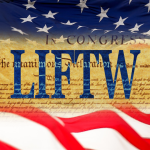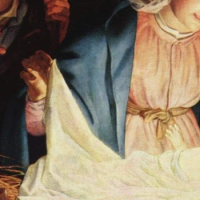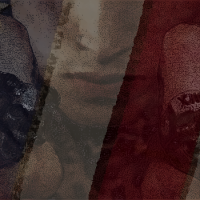Let’s take a look at the state of the American culture today, not in any gritty detail, but just a quick glance is all that’s necessary. Does our culture still reflection the core values of our Founding Fathers, and their deeply held principles, upon which our national character was assumed and thus founded? Let’s explore this by retelling one of the oldest and dearest apocryphal American tales.
It is February 22nd of 1738, and a doting father had a special birthday gift for his especially adventurous six year old son. The boy had been tagging along with his father and the house slaves whenever they gathered firewood almost since he could walk. When he was a toddler, he would shake with glee in his father’s arms when the men cut down a limb or a tree. As he grew into a young boy, he was always eager for even just a chance to take a lick or two himself, grinning up at his father with joy whenever he fell a limb or branch (with help of course).
If joy were a fire, the young boy would have burned the whole manor down as he unwrapped a very real hatchet, with a real steel blade, with a keen edge, and a polished wooden handle, no more or less than the hatchets that the men used in their work. As young boys are wont to do, the six year old ached terribly to use the hatchet, so his father had to stop his son before he could break down all of the firewood about the estate into tinder.
They washed up and joined the family for lunch. They prayed and ate together, and talked of family matters, then the father left to survey his estate, leaving the young boy to his own whiles. Tucking his hatchet into his belt, he allowed his mother to wrap him into a warm coat and gloves, before scurrying out the door. Soon he found himself walking along the main path from the manor leading to the main road, and there he spied it. A branch barely longer than his arm stuck out from the trunk of one of a row cherry trees along the path.
The men might have grabbed it and cut it off with a knife, but, at least to this young boy, clearly a hatchet would be just as good. He fumbled for a while to free the hatchet from his belt, as the coat his mother put on him hung to his knees. He finally managed to hike the back of his coat up enough to free the hatchet. Finally he took careful and deliberate aim at the branch, thinking about everything his father had taught him over the years, how to aim, how to hold the hatchet, how to breath. And he swung.
And he missed.
Rather than neatly taking the limb with a single swipe as the men did, the hatchet bit deep into the truck an inch above the branch. He felt the blood run right out of his face, as all of his boyish confidence evaporated. He took hold of the handle and tried to carefully pull the blade free. The wood creaked loudly against the blade like a stricken animal as the hatchet came free. The gash was as wide as the blade, clear through the bark and nearly an inch deep into live wood of the tree. Not knowing what else to do, the young boy ran home, quietly going to his room to await what he knew would come.
Later the same afternoon, his father returned home in a stew. One of the servants had discovered the state of the tree, thinking one of the slaves had damaged it. He told the father, who, immediately upon hearing the nature of the damage, quickly realized the culprit’s identity. Sending a servant to fetch his son, the father waited by the door. The young boy came downstairs and slowly pulled on his coat. Together, father and son walked in grim silence outside and along the path toward the wounded tree.
Standing beside the tree, Augustine Washington faced his son and sternly demanded, “Do you know how this tree came to be in this state, George?” Ashamed and fighting tears, a young George Washington looked up at his father and replied, “I cannot tell a lie…I did cut it with my hatchet.” Moved by George’s honesty, his father knelt before his young son and too him into his arms tightly, replying, “My boy, the honesty of a son is worth a thousand trees.“
The tale of George Washington and his cherry tree was once accepted as settled fact, though it appears now to be clearly the contrivance of a well meaning biographer. This tells us much more about the culture of the the time. To the first generations of American citizens, personal virtue, especially in the leaders of the day, was often more important than their political beliefs. The reasoning for this was as obvious then as it should be now.
It doesn’t matter what a virtuous man believes politically. Should a virtuous man find himself to be proven wrong, his own virtue will compel him to admit he’s wrong, even if it brings shame upon him, then he will seek to make amends to the best of his ability. He will do this on his own accord guided by his own conscience. A virtuous man will never abuse the power of his office to gain political advantage over his political opponents. A virtuous man will never resort to ridiculous arguments over the definition of “is” to save his political career. A virtuous man will not destroy the reputation of other virtuous men in pursuit of political office.
So are we living in a culture worthy of our Founding Fathers? I leave the ultimate judgment to each of you to decide. I only ask, if not, should we not hunger for a better state of affairs, if not for ourselves, but for those that come after us?
“In times of universal deceit,
telling the truth is a revolutionary act.”
-George Orwell-
Be brave. Be free.
Liberty is For The Win!






